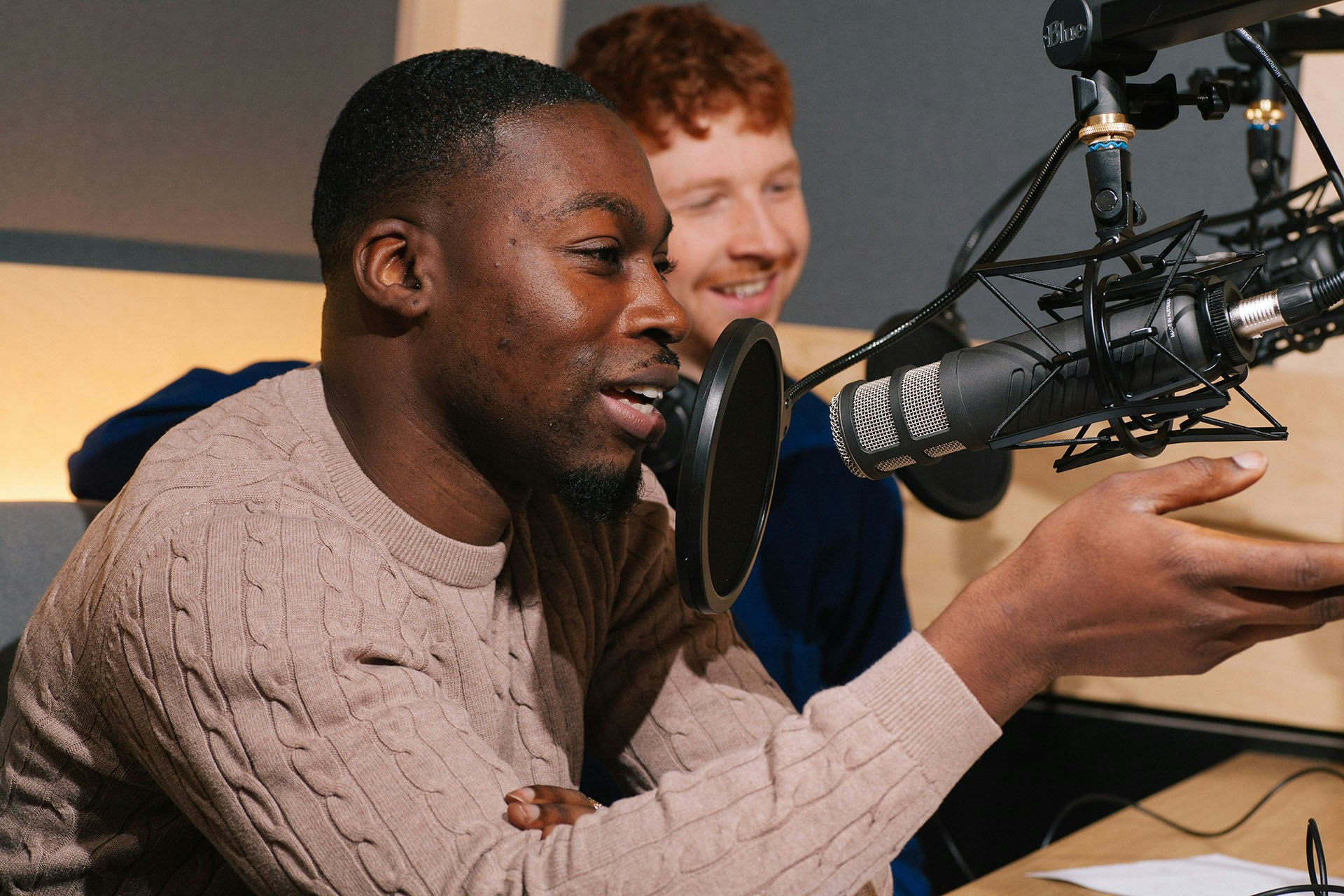
■ Discover New Music
Do you love listening to podcasts? You’re not alone; 15.6 million people in the UK alone listen to these fantastic shows. With podcasts on everything from serial killers to history, music to video games and more, there’s a podcast to suit every listener.
Podcasts are usually short shows, like a radio slot, only hosted on an online directory, rather than a radio channel. You can download them to your phone or computer, or stream them through the directory online. It’s this accessibility and diversity that has made podcasts so popular.
Listeners can usually find a selection of shows that they enjoy, and most shows have a series and add new episodes every week or month.
For some, just listening to podcasts isn't enough- you might want to create a podcast to share your opinions, creative output or ideas with listeners around the world.
Creating a podcast might seem complicated, but it’s surprisingly easy once you know how to start a podcast, what information you need, and the equipment required. Don't worry, podcasts are as easy to create as they are to listen to; you don’t need lots of money or technical knowledge to get your show off the ground.
Whether you’re a budding podcaster looking to put the world to rights, or you want to create a podcast for your business, we’ve got you covered.
We’ve put together a comprehensive guide on how to start a podcast, with everything from creating your show to using audio editing software and recording software, right the way through to sharing your podcast.
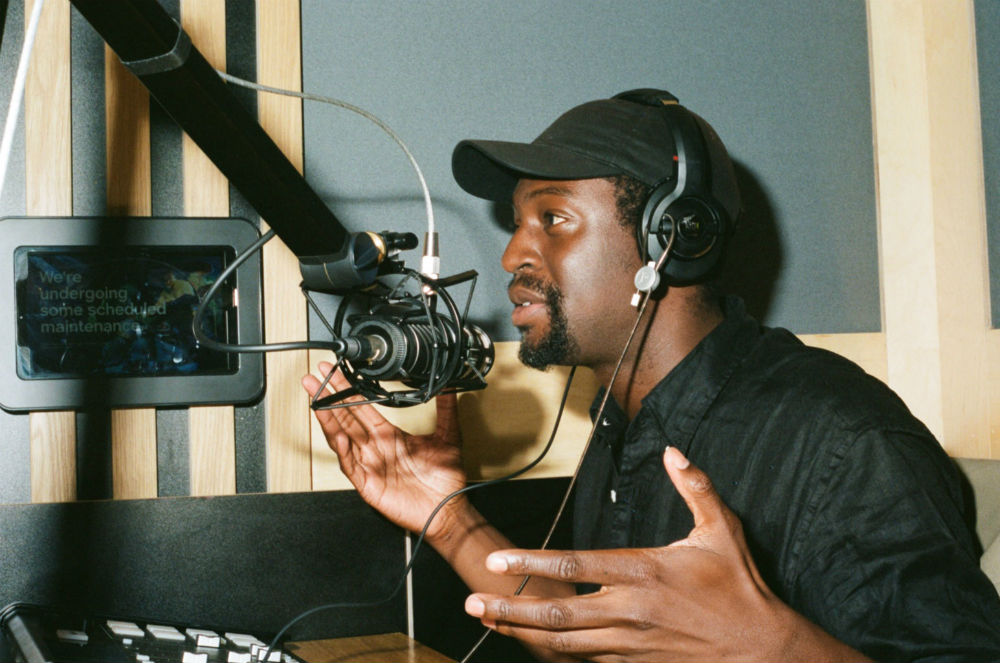
You might love listening to podcasts, but does that mean you should make one of your own?
Creating a podcast is a phenomenal, unique experience and a great way to reach a large audience. If you start a podcast, you'll get the chance to share your views, opinions and talents with potentially millions of listeners.
Podcasting has become popular during the recent lockdowns- check out our interview with lockdown podcaster Ryan Nile to find out more about how to start a podcast and keep it going through the pandemic- you can do it from home and it connects you with the world outside.
Here are some of the questions you should ask yourself before you start a podcast:
If the answer to any of these questions is yes, then you should definitely consider starting a podcast. It’s easier than you think, and it could bring you many benefits. So, what are you waiting for?! If you're unsure about how to start a podcast, don't worry, we've got you covered in this guide.
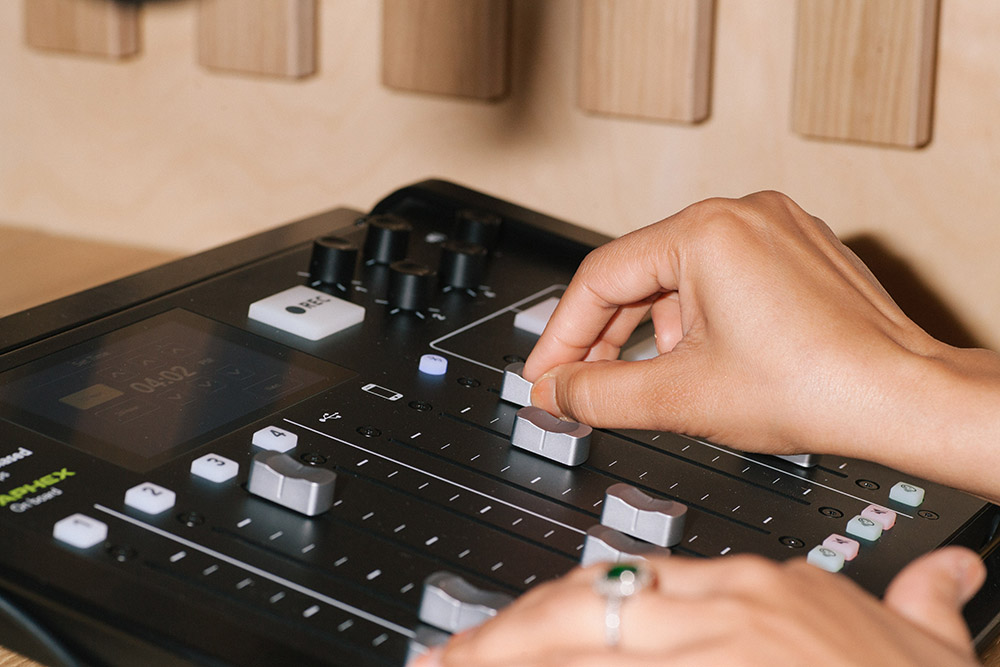
The first step towards starting a podcast is selecting a topic and choosing a name for your new show. From your topic and podcast name, you can build the rest of your show. Therefore, you need to start thinking about these elements before you even consider recording your first podcast episodes.
You might have a good idea, but from that, you need to make a podcast idea that's doable and enticing for listeners.
Choosing your show’s topic and its name could be easy, especially if the show is an extension of an existing business, blog or brand. However, if you’re making a completely new podcast brand, then you’ll need to consider several factors when selecting a topic, including:
Start with yourself, and think about what you’d want to talk about in your podcast. After all, you will be the one managing the podcast for months, if not longer. The topic must be something you love.
Once you’ve thought of a topic and figured out what you’d like to say, you need to consider your audience. Do you think they’d want to hear your ideas?
If you want to get a second opinion, try reaching out to your friends and followers on social media and asking for their opinions. Use the online groups and communities you’re in, especially those targeted at followers who are interested in your chosen topic. Ask them if they’d be interested in your show, and get as much insight from them as possible. You can use this info to guide you through the process of creating your podcast.
With all this information, you could consider building a persona for your ideal podcast listener. Many brands and businesses use personas to understand what a customer might like, so it’s easy to adapt this technique and create an audience persona for your podcast. With your audience persona, you can select a perfect topic for your show and, using that as a springboard, work out the title of your podcast.
Your show's name is often the first thing potential audience members see or hear, and it’s how your listeners will refer to your show in the future. So, you need to make sure your podcast name is snappy, engaging and related to your chosen topic.
As well as asking for advice from followers and friends, and utilising your audience persona, you should check out other titles already available on podcast directories when you choose a name for your show.
Check out the most popular podcast directories on the market, including Apple Podcasts and Spotify. Look at other shows on your chosen topic, and see if you can take inspiration from their titles.
Whether it’s a pun or a descriptive phrase, your podcast title needs to:
Podcast directories like Apple Podcasts only use the first 253 characters of a show’s title, so try to get all the essential info in there. That might not seem like a lot, but your podcast name doesn’t have to tell your potential listener everything. if you want to give your potential listener more info on your show, then you can do this in the podcast description.
Whether you’re witty or descriptive, when you choose a name for your podcast, you need to try and get it right the first time. Changing your podcast’s title once the show is up and running can damage your brand and alienate your existing audience, so take some time to try and get it right the first time!
That being said, don’t despair if your title doesn’t work out; if you decide on a better title while the podcast is still growing, it shouldn’t be too much extra work to change it and build a brand around a new one.
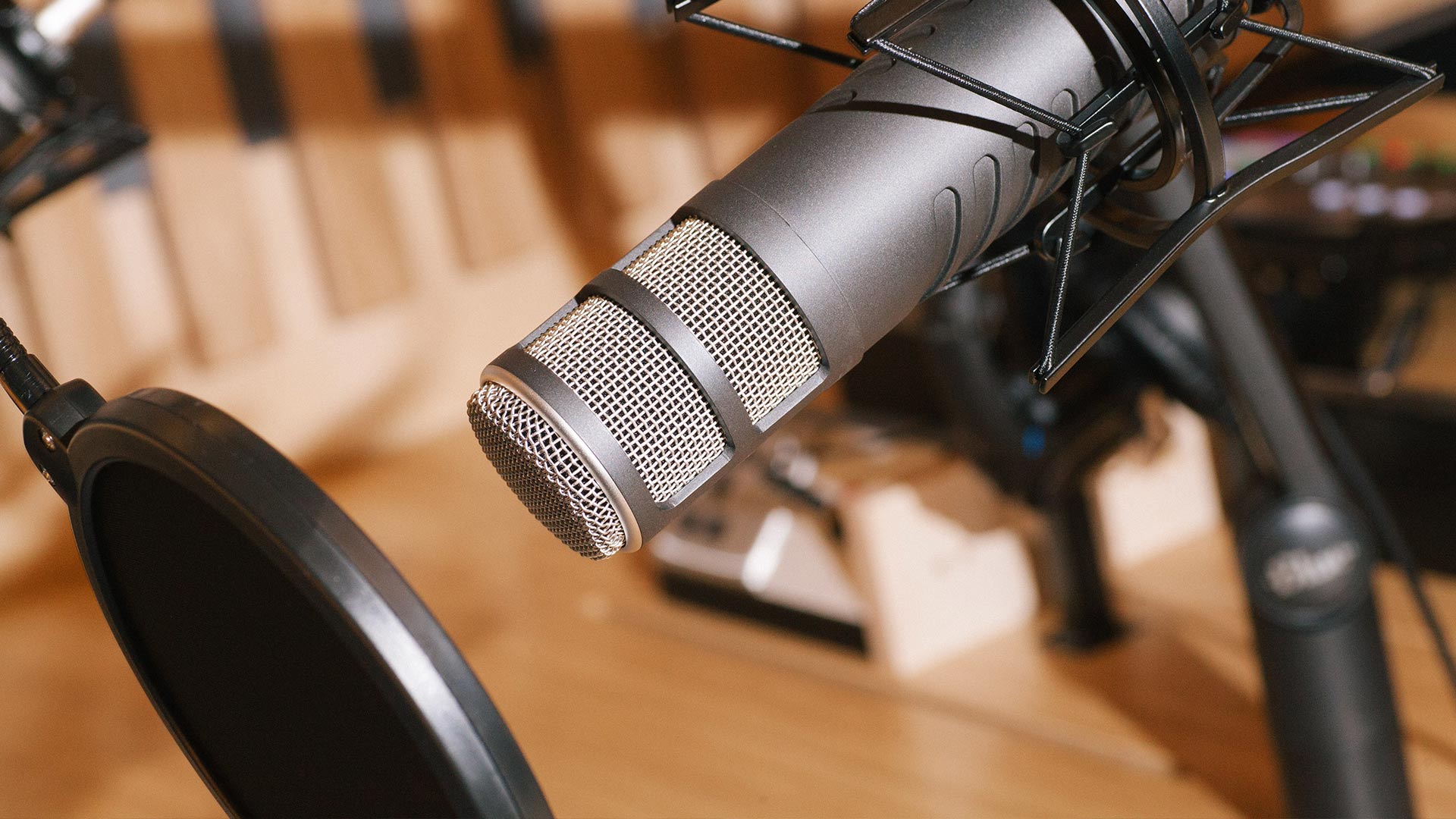
Making a podcast is an exciting process, so, understandably, you might want to jump straight into recording your new show. Hold your horses! There are a few steps to go before you can start recording your audio. One of the first steps is to create a show format.
Your show’s format is a template for your show so that you know what happens in each episode and in what order you’ll do everything. It doesn’t have to be strict, but it should be a comprehensive overview of how you want to organise each episode. If you’re struggling for ideas, then consider checking out other podcasts that you love and listen to how they are structured.
You’ll notice that most podcasts have a set format; so, there will probably be an intro, then the host might introduce themselves and recap the last episode, then move on to an interview, then a quick summary, then an outro.
There are many different types of format for podcasts, so you can find one that will suit your chosen topic and tastes. You can also adapt the format to suit your requirements, meaning you don’t have to copy other podcasts' layout. An intro and outro are both essential, but everything else you can tailor to your show to make your podcast unique.
By creating a format for your show, you’ll make it familiar and ensure that it doesn’t become a rambling, unprofessional mess. You’ll have a rough structure to stick to, so you don’t waste time and create a coherent, insightful episode every time.
If you want to create many episodes and mix things up, you could consider making several formats for your shows. You can then mix things up throughout each season of your show, so that your listeners don’t get bored but your podcast still feels familiar.
With a format at hand, you’ll feel more confident and will have a structure for your show, so that it impresses your listeners and potential collaborators.
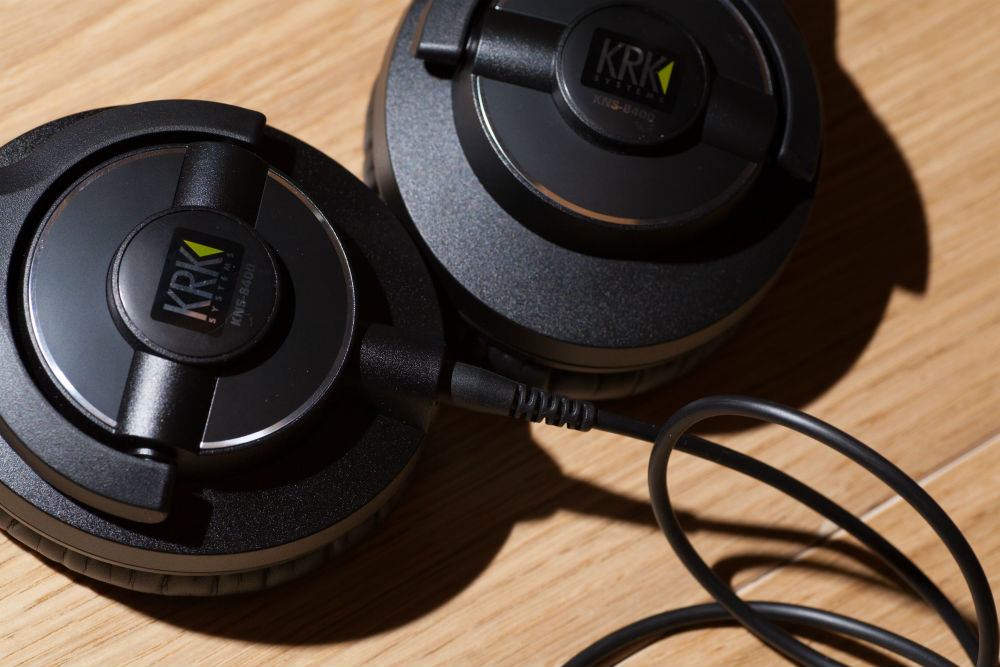
Again, it doesn’t have to be anything too strict, but like your show’s format, a rough script for every episode will allow you to ensure it’s coherent and that you don’t go overboard when recording your audio. You’ll know roughly how long everything takes, so you won’t spend ages on a segment that you only end up using a few minutes of in the final cut.
Podcasts shouldn’t be too formal, so make sure that you don’t make your script sound too rigid.
Ensure everyone who features on your show knows that the script is more like show notes; it's only a rough guide to help them stay on topic. These show notes aren't definite, and they can ad-lib as they wish. You can always allow space for unprompted observations so that everyone has the chance to showcase their individuality.
Some parts of your show might not need a script- for example, if you host interviews with guest speakers. However, it would help if you still prepared questions to ensure that the interview goes smoothly and that you get enough material to engage your listeners.
When potential listeners see your podcast, one of the most noticeable things is the cover picture. A bold, striking image can be the difference between listeners giving your show a shot and passing over it in favour of something more enticing.
You’ve got to choose a show cover image that’s unique and innovative. It needs to be distinctive and eye-catching, but also immediately recognisable.
If you’ve got an existing brand, or you’re a creative who wants to make the perfect cover art first time, then you should follow these tips:
If you’re unsure about creating a unique image for your podcast’s cover art, then you should consider finding a graphic artist who can assist you.
Once you’ve created your dream podcast cover art, you can keep it ready for when you upload your show to podcast directories. In the meantime, you can use your podcast art to define your brand. Once the show is released, you can also use the art to promote it and reinforce your show’s identity.
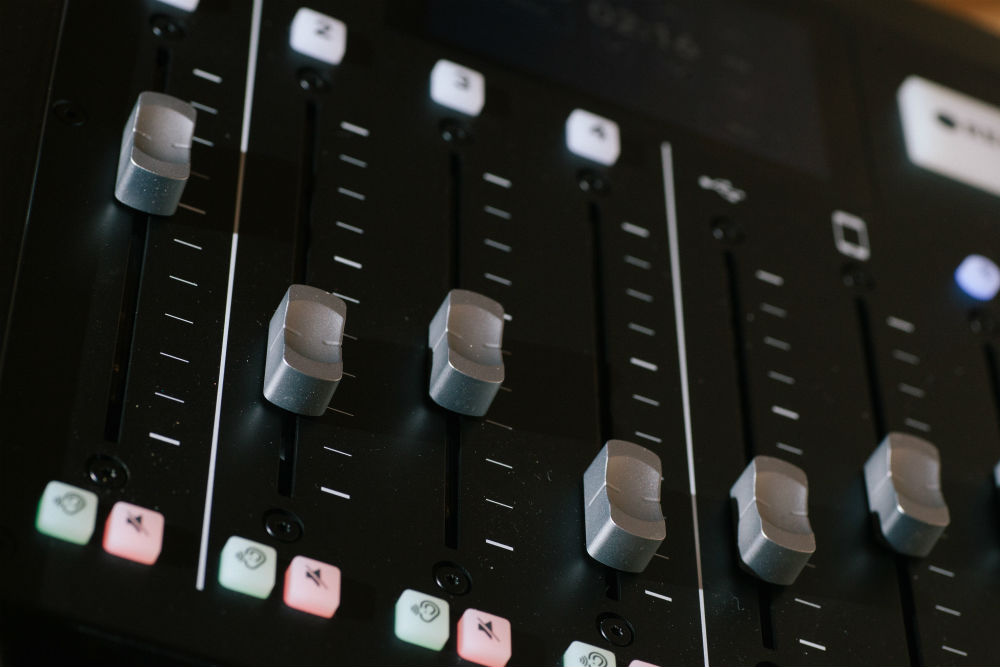
Like TV shows, podcasts are split into seasons, and each one has a set number of episodes. One of the main decisions you need to make before you start recording is how many episodes will be in your first season.
There’s no hard and fast rule for how many episodes a podcast season should have.
The length of your season, and the episodes in it, depends on many factors. These include:
Consider laying out a rough plan for each season, and then working out approximately how long it would take you to cover each season's topics. Then, with that information, you can work out roughly how many episodes you’ll need per season.
With the number of episodes and an overview to guide you, you’ll find it much easier to organise your thoughts and create a fantastic show.
Some podcast types, such as news and commentary shows, might not suit a season format. Instead, it would help if you considered creating a schedule for each week or month so that you always have a plan.
Podcast guests add gravitas to your show and can help you to reach a large audience. As the podcast host, you should consider inviting guests to join you on some of your podcast episodes.
If you’re doing an interview podcast, then you’ll need regular guests for your shows- almost every podcast episode should have a guest.
Even if your podcast isn’t an interview-style show, you should consider inviting guests to join you; they can be interesting and bring their fanbase to your show.
To find some potential podcast guests, you should check out other shows in your niche, and see who regularly appears as a guest.These experts might be willing to make an appearance on your show.
Other ways to find potential guests for your podcasts are:
Once you’ve found some potential guests for your show, you can send them an email to invite them to be a part of your podcast.
In your email, you should tell them about your show, and what you can offer them in return for their insight. You might consider sharing the link to their episode on social media, and the link to their website in your show’s description.
All of these actions will give them free advertising and incentivise them to become a guest on your podcast.
When you’ve got one guest speaker, you can use their name to incentivise other potential guests. They might be impressed by the calibre of your guests and want to join their ranks.
Throughout the process of inviting your guests, recording their interview, editing it and then publishing and promoting the episode, you should keep in touch with your guest and build a great relationship with them.
By being kind and talking to them regularly, you’ll make them more inclined to share your podcast and help you to grow your following.
You might find that, in the future, a satisfied guest on your podcast might be willing to promote other episodes of your show that they’re not featured on to their followers.
Happy guests who enjoyed working with you and being a guest on your show could also provide helpful advice on how to grow your show, and connect you with other experts who could also become future guests.
So, make sure that you take the time to communicate with them and be grateful for the time they put into being a guest on your show. You never know what your podcast guests could do to benefit your show in the future.
With the basic plan for your podcast ready, you need to get started recording your show ready to submit your podcast to a podcast host/ directory. That means getting together all the recording equipment you’re going to need.
There’s a lot of kit on the market, but here’s what you need for a basic podcast recording setup:
You can buy many other items to make your podcast more professional and make it easier for you to create quality audio content.
The basics that everyone needs in their podcasting setup are listed above; as you get your show underway and grow your following, you can consider adding new tech. All of this kit can cost a lot of money, but it’ll be worth investing in quality equipment if you’re going to create a successful show.
If you’re not sure what to buy, or if your podcast will take off, then you could consider using a professional podcast recording studio to make it easy to create the first series or two.
Pirate.com has podcast studios worldwide, from our Birmingham podcast studio to our Los Angeles podcast studio, so consider booking a space and recording your show using our cutting-edge equipment.
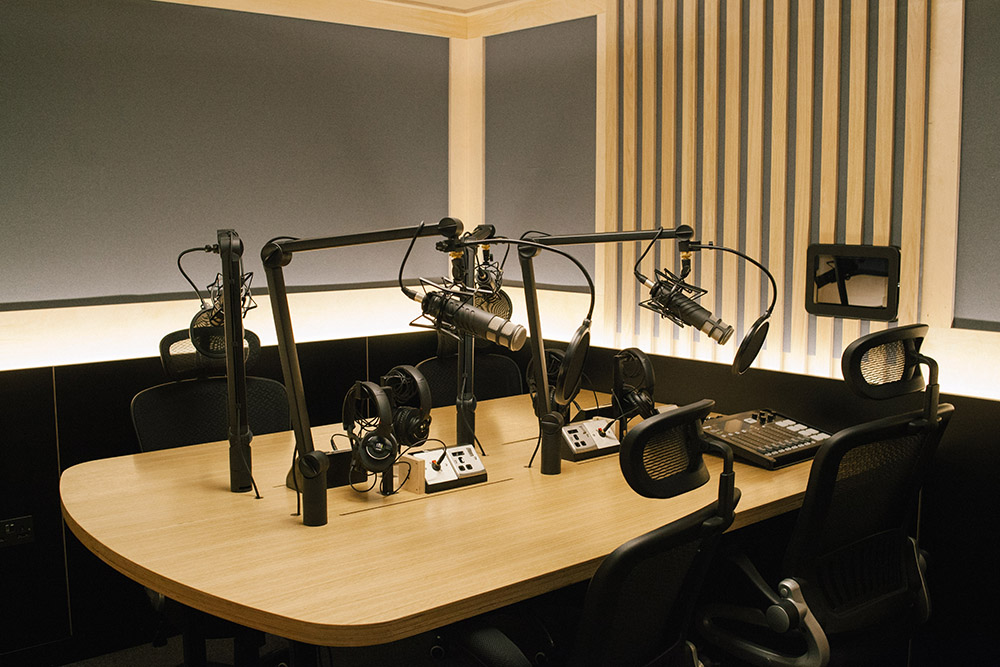
With your audio recordings, show overview and any additional content ready, now you can get onto the fun part: editing your podcast.
Putting together your show and turning it from disparate bits of audio recording into a cohesive, professional-sounding podcast is easier than you might think. However, it still takes a bit of time and effort to get it right.
First, you should check out some of the best audio editing software on the market, to find a solution that will give you all the features you need.
Some popular audio editing tools for podcasters include:
With your software ready, you should upload all of the audio that you have, including your chosen intro music, interview audio and all of the content you’ve recorded for each episode of your show. Refer to your show format to get the intro and ending sorted, then you can get to work on putting together each episode.
When you’re editing your show, you need to listen for any issues, such as long pauses, background sounds, or anything else you don’t want in your podcast. You can also use your editing software to normalise your content levels, add sound effects, and more.
When each episode is ready, you can add the intro and outro, plus any ads that you might’ve created to boost your income.
Before you start uploading and sharing your podcast, you must listen to each episode through. You might notice an issue that you overlooked before and catch it before you broadcast your show to the world.
It might also help if you get a trusted friend to check out your show before you upload it so that you can get a fresh perspective on it. They might have some insight that could help you to improve the show before you share it with, potentially, millions of listeners. Starting a podcast requires a lot of support and hard work, so don't be afraid to ask for help!
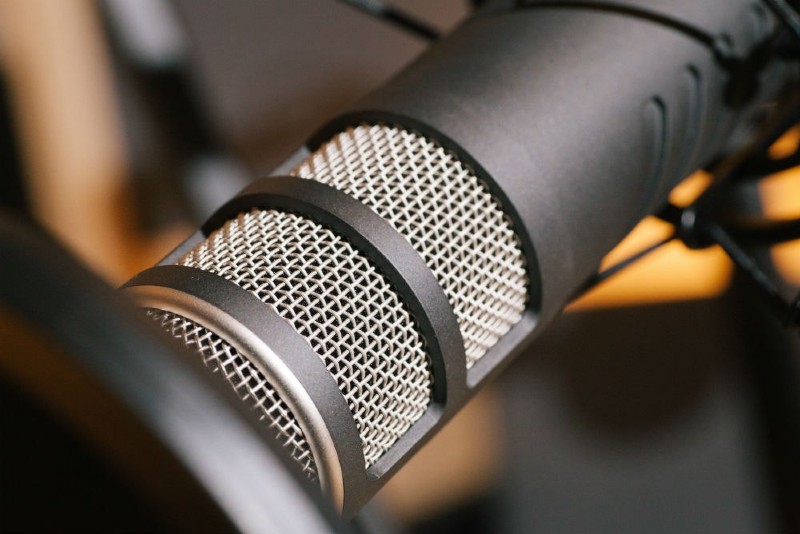
Now that your first episode's audio file is ready to go, it’s time to publish your podcast and get it out in the world. That means finding a podcast hosting platform.
Uploading and storing multiple audio files online requires a lot of bandwidth and space, which is why it’s hard to host your podcast on your own website.
That’s why you need to find a hosting platform that suits your needs. These platforms let you create an RSS (really simple syndication) feed, allowing you to upload the audio to podcast directories like Apple Podcasts or Spotify.
There are plenty of platforms out there that will let you host your podcast; many are free and provide a fantastic service. Some of these solutions offer recording software or additional tools to help anyone make a podcast, so check out the features they offer.
Many of these free solutions give you the option to pay for additional features, so you can find a service that will suit your needs and fit perfectly into your budget.
Some of the most popular podcast hosts are:
You’ll only need one podcast hosting platform, so you should take the time to review all the options and find the one that’s right for you.
Many of these solutions offer free trials or complimentary packages to test them out and see if they have the features and interface you want.
When you’ve found your perfect podcast host, you can get started uploading your first episode by following the platform’s instructions.
You’ll need to have your show description handy, as you’ll need to use this and any cover art you might have to upload your show to your podcast hosting platform.
Once your podcast is uploaded, you’ll have an RSS feed, which is key to adding your show to a podcast directory, as we’ll explain in the next section, so keep reading.
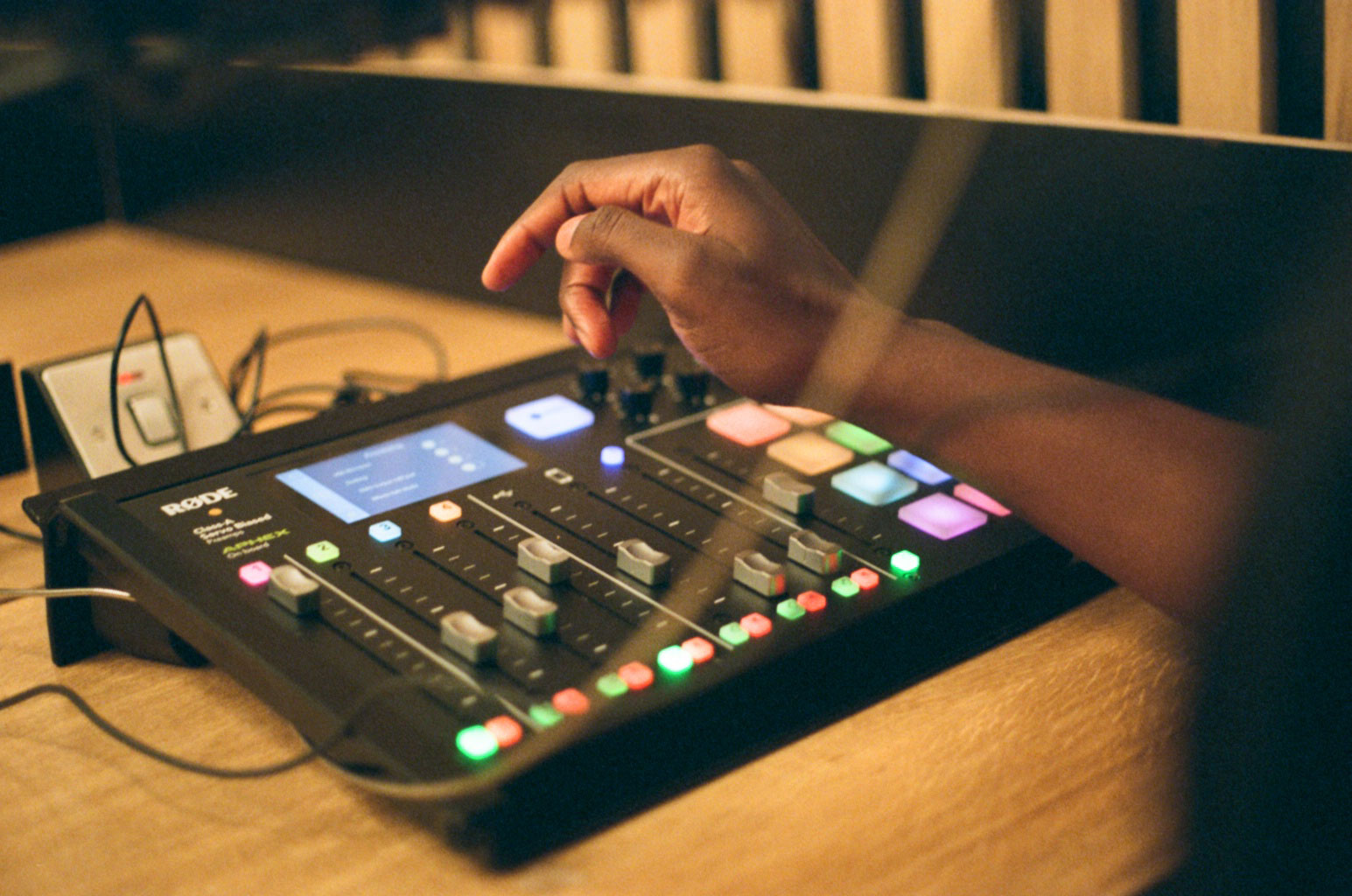
Podcast directories are different from hosting platforms, as they help you reach and interact with your audience. The hosting platform is the beginning, as it gets your show online, but now you need to reach your potential listeners.
There are plenty of podcast directories out there, including:
Video hosting platforms such as YouTube also help you reach a wider audience and get them hooked on your show. You can also share your show on social media, your podcast’s website and other online platforms.
Before you start uploading your podcast to a directory, you need to check that your show fits the directory’s requirements. Most hosting platforms will give you an RSS feed that’s compatible with most popular podcast directories, but make sure you check first.
Some podcast hosting platforms will also automatically upload your show to popular directories, such as Apple Podcasts and Spotify, so you should check if your show is already on your chosen directories before you get started.
If it isn’t, then you’ll need to upload it manually. If you don’t already have an account on the platform, then you’ll need to create one and verify it.
Then, you can follow the podcast directory’s instructions to upload your show. Usually, you’ll need the RSS feed, podcast name, description and cover artwork.
You can find out more about how to upload to Apple Podcasts or how to upload your podcast to Spotify to get more in-depth insight into how to use these platforms.
Once you’ve uploaded your show, you’ll need to wait for it to be verified. Some platforms, like Apple Podcasts, will alert you when your show is up on the directory. Others, like Spotify, won’t tell you that your show is live, so you’ll have to keep checking until you see it.
With your show out there for the world to see, you might think your work is over. After all, you've learned how to start a podcast and have your first episode uploaded.
However, you now need to get started on the next stage of starting a podcast- getting it noticed! If you want to achieve success and get listeners to love your show, you need to promote your podcast.
It doesn’t matter how amazing your podcast script, how impressive your guests or how amazing your editing skills are; if you don’t promote your show, it won’t get noticed.
Promoting a podcast isn’t too different from pushing any other brand or platform, but it takes a lot of hard work and commitment. If your podcast is an extension of an existing brand, then you’ll have less work to do, but if you’re building a new following, then you’ll need to be proactive.
If you’ve already followed the points in this guide and uploaded your show to Apple Podcasts and Spotify, then it’ll be accessible to millions of listeners. Most podcast directories promote popular shows with a large audience, so you’ll need to do your own promotion when you're launching a new podcast.
Some of the ways you can promote your show include:
Using these platforms and tips should help you build your podcast’s following and enhance your show’s brand.
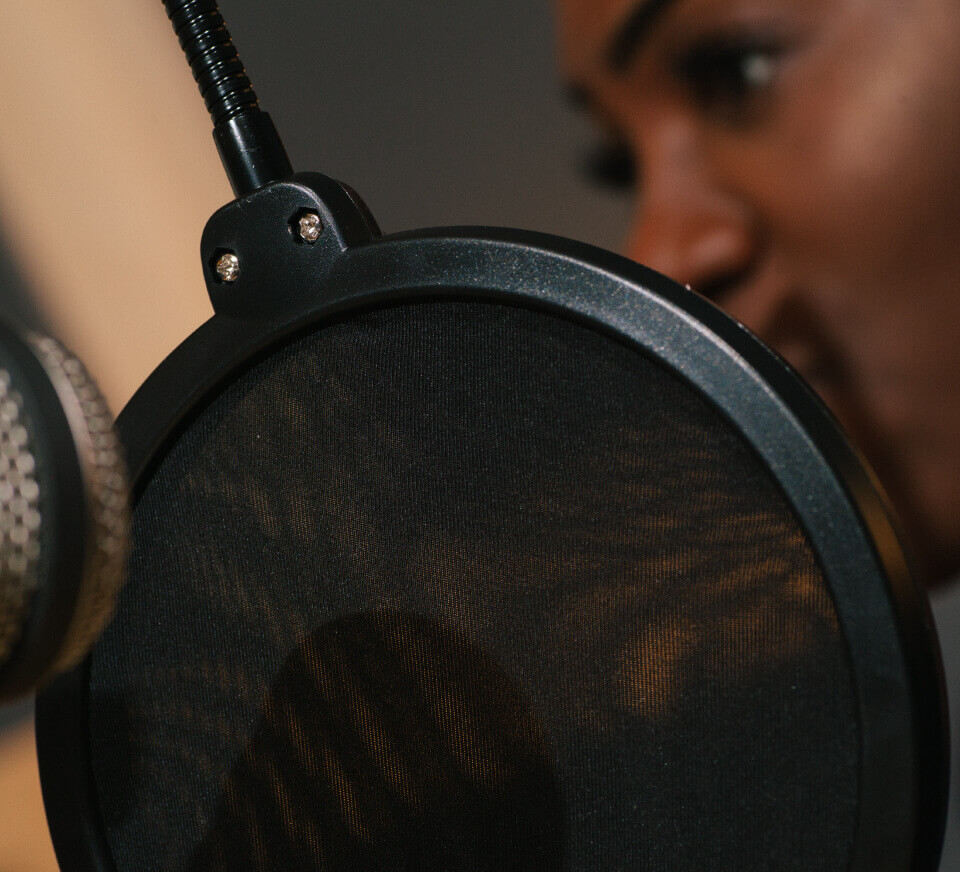
You might not have intended to make money from your podcast, but once you’ve built a following, you could leverage it to fund your show and give you more time to spend creating it.
The show itself can earn you cash through sponsorships, advertorial content, affiliate sales and paid promotions. However, you need to make sure that you follow the Advertising Standards Authority’s rules and disclose any paid promotion to your listeners.
As well as earning by selling advertising space in your show, you could also leverage your show’s brand to earn money. Many popular podcasters create merchandise to build on the popularity of their brand.
There are loads of merchandise options for your podcast from hats to slogan t-shirts, keyrings to pens and much more.
Once you’ve achieved some success from your podcast, you could also consider guiding others and helping them to start a podcast. Many respected podcast creators, like Alex Holmes, share their top podcasting tips with podcast enthusiasts to help them to emulate their success.
Creating an online course or demos on how to become a successful podcaster could help you earn some extra cash. You could also contribute articles to magazines and sites that pay for your insight, which will also help you to promote your show. Some podcasters also offer exclusive extra content, which fans can pay for either per piece of content or by paying an ongoing subscription.
Many podcast hosting platforms allow you to make your episodes public or private, so you could consider making certain interviews or exclusive content available only to those fans who pay for it.
Using your podcast and its brand to earn money can help you to reduce your other money-making endeavours and spend more time on your show. Everyone needs extra money, whether it’s for new gear or so you can take a break from your main job, or even leave it. So, even if you only started your show as a hobby, try using some of these ideas to earn some cash!
Now that you’ve finished this guide on how to start a podcast, you know the basics about turning your idea into a fantastic show. Getting your podcast off the ground is just the first step; now you can start improving things and growing your podcast’s following.
It might take a bit of time and hard work, but by following these tips and putting yourself out there, you’ll eventually be well on your way to creating the successful podcast of your dreams!
Pirate.com is here to help you through every step of the process. We've explained how to start a podcast so you can get started, but now we have some other resources you can use to turn your good idea into an incredible show.
Here are just some of the things we can offer you to help you to grow your show:
